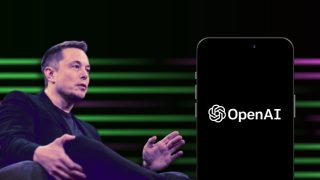What are the biggest challenges and opportunities you see in today’s global wholesale market?
From a global backbone perspective, managing growth is both a challenge and an opportunity. As 400G gains more traction in the market, rolling out requires significant movement in terms of upgrades to routing equipment and building links between routers.
Our Global IP Network team is in the middle of that process now, and it takes a lot of resources to do that at a global scale – meaning it’s a multi-year project. You also have to factor in potential disruption for customers as routers are changed, so there are certain logistics necessary to let them know when there’s going to be a maintenance window. But it’s a good challenge to have, as it also means there’s demand for greater and greater amounts of traffic.
How well-equipped is NTT DATA to meet that challenge?
The good news is that it isn’t the first time we’ve ever had to move from one generation of equipment to another; we’ve done it many times over the decades that we’ve been running the network, so we’re very aware of how the process works. The specifics of each of those generational changes are obviously different, but the logistics in general terms are similar to what we did when we went from 10G to 100G.
We therefore have a great team of people that in many cases have done these things before and can apply their learnings. In addition, we build out plans multiple years in advance. We also have a lot of in-house systems we’ve built over time that help with migrations. Furthermore, our maintenance windows are often for a few hours in the middle of the night, helping minimise disruptions.
What has contributed to NTT DATA’s Global IP Network being consistently ranked among the top networks worldwide?
At the end of the day, it’s really about the people we have in the organisation. Many have been here for a couple of decades or more, meaning they have experience that is incredibly difficult, if not impossible, to replicate.
They also take a good level of ownership and accountability for projects and running the network, thinking about the organisation as their business and not just some big company they work for.
Additional things come from that, like the in-house applications and systems we’ve built. The nature of how we run automation on the network and analyse traffic is based on such homegrown systems, which are a critical ingredient in our success.
Are there any recent service launches you would highlight aimed at meeting the latest market demands?
The biggest is the new tier of our DDoS Protection Service [DPS], known as DPS Service Provider. This adds to the four DPS offerings we already have that provide various levels of protection – Control, Core, Detect and Max.
As many of our customers are service providers, our new tier was purpose-built to cater to their needs. It allows them to sell the same capabilities as ourselves to their own end users, creating new revenue opportunities for them. It offers similar features to our other DPS tiers, such as proactive attack detection and mitigation, but also some that we haven’t provided before in these offerings, such as self-service portal access and some reporting tools.
How is AI affecting NTT DATA as a global provider?
AI is a compelling area, and there’s certainly a fair amount of hype around it. So far, we’ve been enabling our engineering teams to explore and experiment with different AI applications in parts of our operations to see what advantages it can have, how we might leverage it and in what ways it could be beneficial to ourselves and our customers.
When we first rolled out our automation suite in the late 1990s, it wasn’t the same as AI, but the mindset was the same because no one had done it before and we weren’t really sure how it would work. It was therefore experimental in a way, and I believe AI will be much like that for us as well. To some extent, we’re also being cautious before introducing anything at a broad level, which we would only do after thoroughly testing and validating it.





